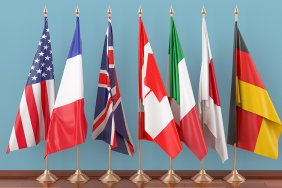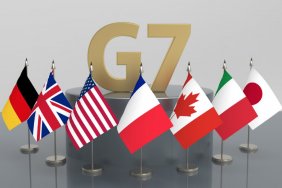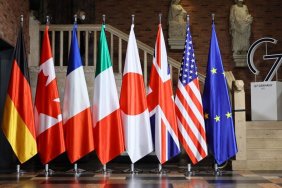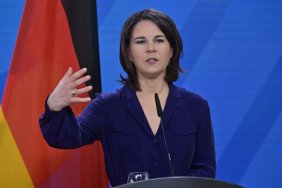During the meeting of the finance ministers of the "Group of Seven" (G7) countries discussed secondary sanctions and other ways of limiting Russia's income from oil while minimizing the impact on energy prices. This was reported by U.S. Treasury Secretary Janet Yellen, quoted by Bloomberg.
The U.S. has already banned oil imports from Russia, and the European Union intends to do the same gradually over the next year. Meanwhile, G7 officials also discussed the possibility of secondary sanctions to curb Russian oil prices, Yellen told reporters in Bonn, Germany, Thursday.
Creating what could be called a buyer's cartel to enforce a set price for Russian oil could help minimize Moscow's profits, the paper wrote.
"A lot of people, particularly me, find it attractive from a general economic point of view, but it's actually difficult to make it work, and all these issues are still unresolved," Yellen said.
Limiting oil prices, as indicated, will be the focus of U.S. President Joe Biden's trip to Asia as the U.S. and its allies work to curb one of Russia's main revenue streams amid its invasion of Ukraine.
According to a person familiar with the matter, EU leaders will also support a price cap when they meet in Brussels at the end of May to discuss the Ukraine issue.
"The Europeans are trying to figure out what they're going to do, and that's largely up to the Europeans," Yellen said.
"Their main goal is to get rid of their dependence on Russian oil over the next year, and in the meantime, I think they're open to finding ways to reduce Russian revenues. And the goal is to get some Russian oil into the market to keep global prices down so that we don't have an excessive negative impact on third countries," she pointed out.
A source familiar with the matter said that setting a price ceiling is far from becoming a reality, but is part of an effort to pressure Russia without imposing sanctions on buyers of Russian energy. Such sanctions must be infuriating for countries like India, which rely on Russian oil, the paper wrote.
Ukrainian Foreign Minister Dmytro Kuleba believes that the imposition of an oil embargo against Russia is only a matter of time. And that the EU countries will sooner or later reach a common position on the imposition of a ban on Russian oil.






